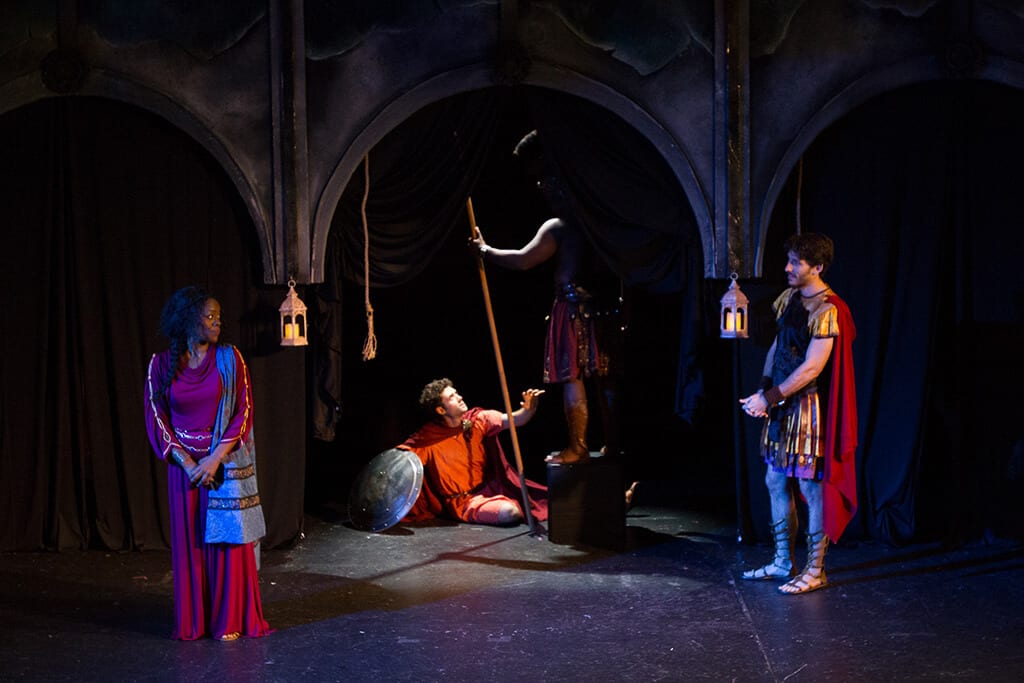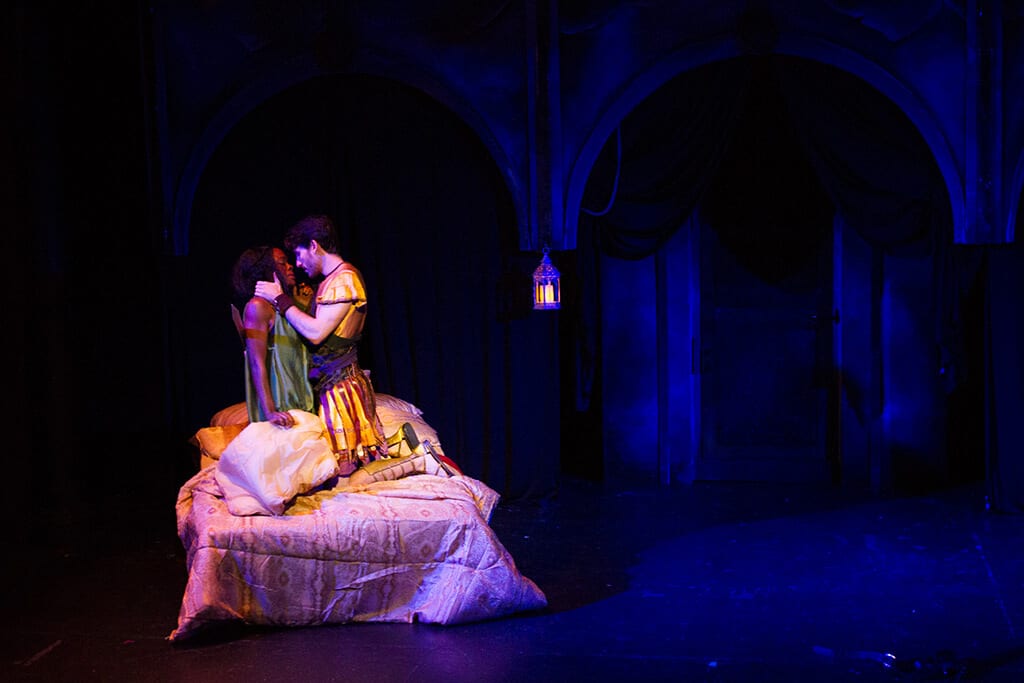A good play is one that may be set in ancient Rome (and I mean really ancient Rome, centuries before Julius Caesar); may have been written 400 years ago by a dead Elizabethan playwright; but still, reincarnated in the Lower East Side, manages to tap into the cultural reverberations of our fast-paced world. But far be it from me to harp on about how eternally relatable Shakespeare is. Just let the New York Shakespeare Exchange convince you.
After an inventive reimagining of Hamlet in the spring, the New York Shakespeare Exchange has tackled a lesser-known Shakespeare work: a poem called The Rape of Lucrece. Its title serves to spoil the plot instantly. The beautiful and chaste wife of a distinguished Roman officer is violated by an entitled prince, who has heard stories of Lucrece’s virtue and value from the men in her life who cherish her. In this prince, Sextus Tarquinius (played by the dangerously charming Leighton Samuels), is stoked a ravaging desire to possess what he cannot have. But this play is not as much about rape as it is about the demons of society which have yet to be conquered. Male dominance, the objectification of women, double standards which can be, quite literally, fatal: these themes lurk even in the lightest of scenes.
Much of this contemporary urgency is the credit of Kevin Brewer, who adapted the original Shakespearean poem. The ancient Roman world is fleshed out on the stage by characters with dead-language names speaking in Elizabethan verse. Yet nothing about it feels stuffy. Each character is expressive and entirely three-dimensional, from the bumbling servant Caius to the fiercely intelligent Lucrece and her fiery handmaiden Mirabelle. From its most tragic verses to a rather silly chamber pot gag, the scenes are unfailingly well-acted.
What breathes life into this often-overlooked work of Shakespeare’s is where its emphasis lies. Aaliyah Habeeb, who shines as the benevolent Lucrece, takes the room captive with her heart-wrenching performance as a woman struggling to process the unimaginable. The aftermath of Lucrece’s rape is not just a personal, internal hell for her – it’s also a political one. She knows she will get no justice from the law; she might even get punishment in its place. It is in women that The Rape of Lucrece finds justice – as well as its most compelling characters. Gabby Beans radiates quiet power as Mirabelle, Lucrece’s servant, best friend, and protector. And a particularly inventive twist was incarnating the Trojan prophetess Cassandra (Kate Lydic), a physical manifestation of female suffering and strength, to represent Lucrece’s inner resolve. Cassandra comforts Lucrece when others cannot and even lays her body to rest while the men are too distracted by their own political ends to even realize Lucrece has killed herself.
A play like this cannot help but strike a nerve, and the New York Shakespeare Exchange has pulled it off brilliantly. With a stellar cast and an ancient, captivating story that begs to be retold, the only pity is that The Rape of Lucrece has such a short run.



